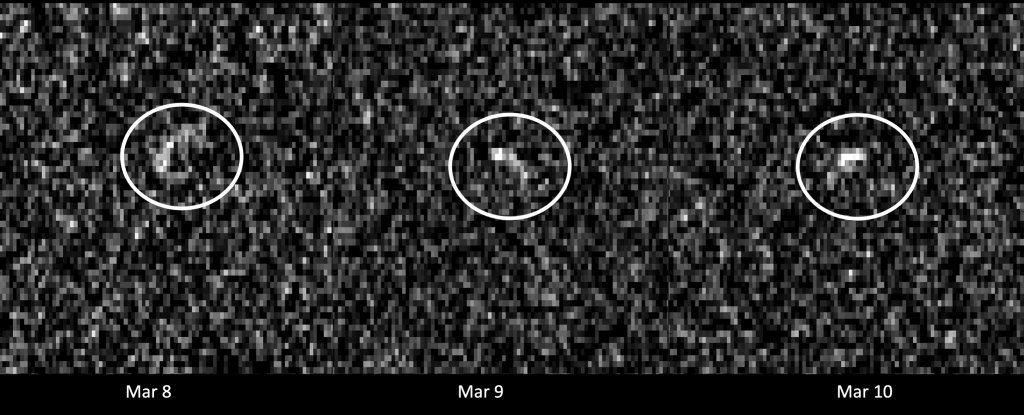Products You May Like
A few years ago, astronomers ruled out the chance of a potentially hazardous asteroid named Apophis redirecting and hitting Earth as it whizzes by.
That’s a huge relief. But we weren’t entirely out of the woods. We’ve seen, thanks to the Double Asteroid Redirection Test, that it’s possible to change the orbital course of an asteroid by smacking it with something.
There are a lot of space rocks floating around out there in interplanetary space. What if one of them collided with Apophis? What if it knocked Apophis off its current course? What if the new trajectory was a collision course with Earth?
Well, you can relax. Astronomers Paul Wiegert of Western University and Ben Hyatt of the University of Waterloo in Canada have projected the orbits of over 1.3 million known asteroids in the inner Solar System and reached a comforting conclusion: Not a single asteroid is going to collide with Apophis in the next few years.
“Given how closely Apophis will pass Earth, there is a possible risk that a deflection from its current trajectory may move Apophis closer to impacting us,” Hyatt says.
“Hypothetically, another asteroid colliding with Apophis could cause such a deflection, motivating us to study this scenario however unlikely it may be.”
Apophis was discovered in 2004, and immediately assessed as a potential threat. Early projections suggested it had a very worrying 2.7 percent chance of slamming into Earth on its 2029 flyby.
That was ruled out pretty quickly, but Apophis’ orbit brings it to an Earth flyby every eight years. It took until astronomers made new precise measurements of the asteroid’s position during its 2021 flyby to rule out the possibility for the foreseeable future.
frameborder=”0″ allow=”accelerometer; autoplay; clipboard-write; encrypted-media; gyroscope; picture-in-picture; web-share” allowfullscreen>
That was great news. But there’s something rather existentially alarming about the threat of an asteroid impact. There’s so very little we can reasonably do about it, unless we have a lot of advance warning. Because Apophis used to represent the biggest threat in that direction, astronomers are keen to rule out all possibilities.
So, Wiegert and Hyatt got to simulating. Based on the current data, there’s no risk of collision. Apophis may pass another asteroid called Xanthus in December of 2026 within 10,000 kilometers (6,200 miles); they won’t hit, but it is possible that any unseen debris tagging along with Xanthus, if it exists, could hit Apophis.
But the risk of that, according to the simulations, is negligible.
“We calculated the paths of all known asteroids using a detailed computer simulation of our Solar System and the possibility of such an unlikely event was evaluated,” Wiegert says. “Fortunately, no such collisions are anticipated.”
So all we have to worry about now is unknown asteroids.
The pair’s research has been accepted into the Planetary Science Journal, and is available on preprint server arXiv.
